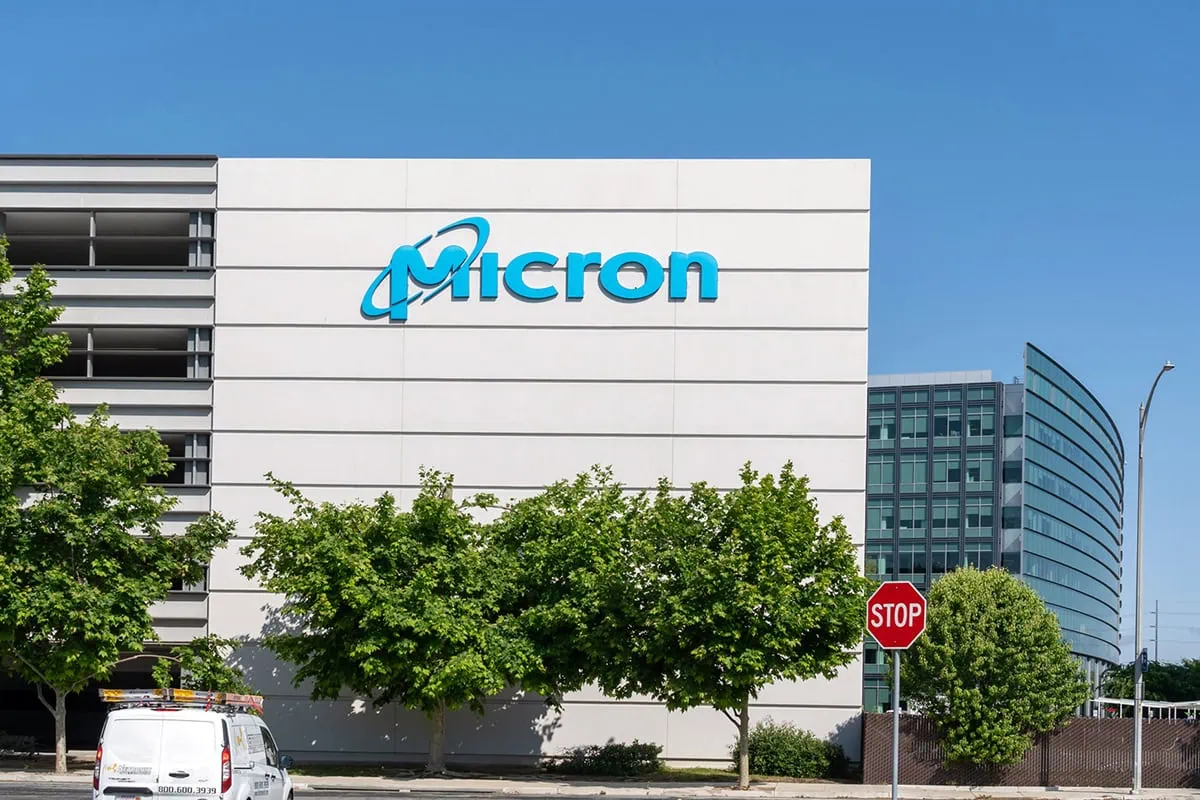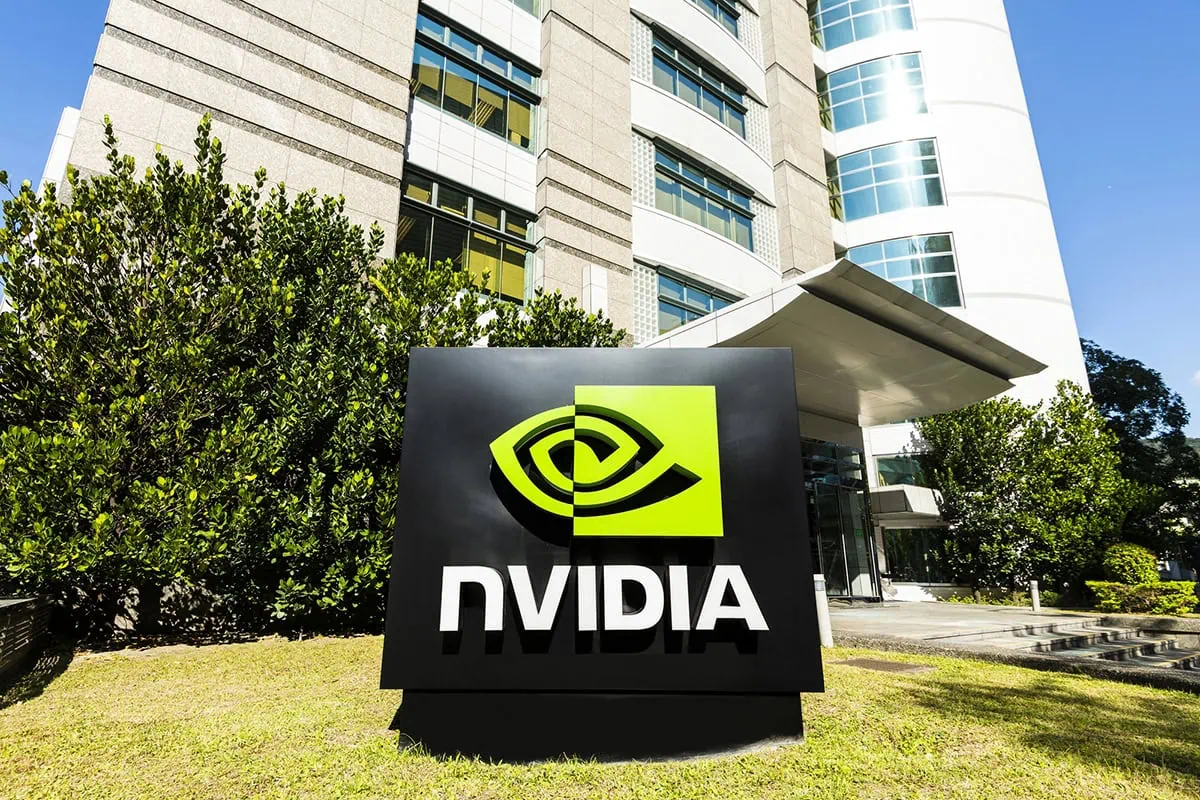Anyone who kept their faith in growth stocks earlier this year has been well rewarded by now.
A choppy start for growth strategies across 2025’s first couple of months turned into outright calamity as tariff concerns sent the broader market plunging to within inches of bear territory.
Since then, however, the major indexes have bounced back and then some, setting new all-time highs on a nearly daily basis. And despite a robust gain for the year-to-date, Wall Street still sees plenty more upside … especially across its most universally agreed-upon bull cases.
Let’s look at some of Wall Street’s favorite growth stocks—companies that are expected to deliver much more top- and bottom-line growth than the average firm, which is in turn expected to drive outsized shareholder returns.
Disclaimer: This article does not constitute individualized investment advice. These securities appear for your consideration and not as personalized investment recommendations. Act at your own discretion.
Editor’s Note: Tabular data shown in this article are up-to-date as of Oct. 8, 2025.
Featured Financial Products
Table of Contents
What Is a Growth Stock?

A growth stock is generally viewed as a company that is improving sales and profits with each passing year—typically at a faster clip than the industry average. This should, in theory, result in faster stock price appreciation as other shareholders get wise to this success and decide to buy in themselves.
Growth stocks tend to be viewed in opposition to value stocks, which might not grow as fast but have substantial underlying operations that the market is underappreciating (for now).
So, what metrics do we want to look at?
Growth stocks tend to boast rapid sales. Income matters, too—though it’s more important among more established companies, as smaller growth stocks often burn all their cash on expansion. Expectations matter, too, because if rapid growth still falls short of Street estimates, these supposedly highflying companies might still see their stocks slump.
Similarly, we have to consider the competition. For instance, if an AI company is growing at a 40% rate, that might sound great … but if similar companies are growing at a 50%-plus clip, that AI company could be viewed as a laggard.
In other words: Not all growth stocks are good investments, even if they’re growing … heck, even if they’re growing quickly! That means we have to look past the surface to really find the best growth stocks to buy.
The Best Growth Stocks to Buy Now

The top growth stocks right now are companies expanding faster than the broader market, as well as their peers. That often involves riding a long-term trend that will result in a durable tailwind for years to come.
Nothing is certain on Wall Street, of course, and growth stocks that showed strong revenue trends or stock price appreciation over the past year might still stumble when things change in the months to come. That said, investors who pay attention to growth stock data can often identify companies moving into favor—and share in their success.
Here are a few examples of growth stocks to watch based on recent performance and financial metrics. I’ll also provide each stock’s consensus analyst rating, courtesy of S&P Global Market Intelligence. The consensus rating is the average of all known analyst ratings of the stock, boiled down to a numerical system where
1-1.5 = Strong Buy
1.5-2.5 = Buy
2.5-3.5 = Hold
3.5-4.5 = Sell
4.5-5 = Strong Sell
In short, the lower the number, the better the overall consensus view on the stock.
All stocks here are rated at least 2.0 or below, meaning at worst they’re solidly in the Buy camp.
7. Eli Lilly

— Sector: Health care
— Market cap: $761.8 billion
— Long-term earnings growth estimate: 33%
— Consensus analyst rating: 1.79 (Buy)
Wall Street analysts stuck by Big Pharma mainstay Eli Lilly (LLY) through what was shaping up to be a lousy 2025, amid both a terrible performance for shares and a worrying result for one of its most promising drugs.
That faith is finally starting to pay off.
Lilly has a stable of blockbuster products, including breast cancer drug Verzenio and type 2 diabetes treatment Trulicity. But most of LLY’s growth hopes rest on the shoulders of its diabetes and weight-loss products, including two products (Mounjaro and Zepbound) that generated a combined $16.5 billion in revenues last year. However, in early August, LLY shares took a double-digit hit after a late-stage trial for its weight-loss pill (orforglipron) delivered a less-than-expected average weight loss and trailed the efficacy of a drug from rival Novo Nordisk (NVO).
Related: 7 Best High-Dividend ETFs to Buy
But a few weeks later, data from another orforglipron trial met expectations; Goldman Sachs’ Asad Haider (Buy) called it an “important clearing event that sets up for orforglipron U.S. FDA filing by the end of this year, and potential approval during 1H26 if LLY were to utilize a priority review voucher, which the company has not ruled out.”
The broader analyst community currently has 19 Buys on Eli Lilly’s shares, versus eight Holds and one Sell. They also have high top- and bottom-line expectations going forward; as a group, they estimate that sales and profits will rise 37% and 75%, respectively, for full-year 2025, then by 19% and 33% in 2026.
Also worth noting is Lilly’s dividend, which was upgraded by more than 15%, to $1.50 per share, earlier this year.
Related: 10 Best Vanguard Index Funds to Buy
6. Capital One Financial

— Sector: Financials
— Market cap: $136.8 billion
— Long-term earnings growth estimate: 15%
— Consensus analyst rating: 1.65 (Buy)
Capital One Financial (COF)—the entity responsible for “What’s in your wallet?” being etched into our collective consciences—is an interesting financial hybrid whose operations include consumer banking, commercial banking, and credit cards.
Why do I say “interesting”?
Credit cards typically work in what’s called the “four corners model.” In this model, 1.) financial institutions like JPMorgan Chase (JPM) and Citigroup (C) are responsible for a cardholder’s account, while 2.) payment processors like Visa (V) or Mastercard (MA) are technological middlemen that help facilitate transactions between 3.) cardholders and 4.) merchants.
Related: 8 Best-in-Class Bond Funds to Buy
Capital One is one of those financial institutions, and for many years, it has issued both Visa and Mastercard cards and been a part of the “four corners model.” However, a handful of companies, such as American Express (AXP) and Discover Financial, operate within the “three corners model” in which the same company is responsible for both financial accounts and the payment network … and as of May 2025, Capital One now owns Discover.
The initial deal announcement was made in February 2024, and Wall Street has significantly warmed up to COF shares ever since, with the consensus call rising from a Hold then to solid Buy territory today. Right now, 17 analysts call the stock a Buy, six more are on the sidelines, and no one says it’s a Sell. That optimism is focused not just on the here and now, but pretty far down the road; Wall Street expects quite a bit of investment that should eventually pay off in longer-term growth.
Related: 8 Best Stock Picking Services, Subscriptions, Advisors & Sites
Consider this from Keefe, Bruyette & Woods, who rate COF at Outperform (equivalent of Buy):
“We acknowledge that substantial investment may be necessary to position the Discover network as a viable alternative to Visa and Mastercard in the credit card space and hence we view the credit portfolio conversion as more of a long-term aspiration (5-10 years) rather than an immediate strategic priority. Nonetheless, our scenario analysis suggests that if successfully executed, this investment could yield highly attractive returns, making it a compelling avenue for COF to pursue over time.”
In other words, COF might not be one of the best growth stocks to buy for rip-roaring gains right away, but it could very well be a transformative medium- to long-term play.
Do you want to get serious about saving and planning for retirement? Sign up for Retire With Riley, Young and the Invested’s free retirement planning newsletter.
5. First Solar

— Sector: Technology
— Market cap: $24.7 billion
— Long-term earnings growth estimate: 31%
— Consensus analyst rating: 1.59 (Buy)
The solar industry can be a bit volatile. But in the age of climate change, there is a durable tailwind for this industry as one of the most popular forms of alternative energy. And among solar stocks, First Solar (FSLR) is near the top of the heap when it comes to both market value and revenue directly attributable to solar arrays.
Headquartered in Arizona, First Solar provides photovoltaic energy solutions worldwide, from the U.S. to Japan to Europe to Australia. Indeed, it’s America’s largest manufacturer of PV modules, at an estimated market share of 50%.
Related: 13 Dividend Kings for Royally Resilient Income
Of course, what does that mean amidst a new administration that’s expected to be more fossil fuel-friendly? Despite a decline in shares across the first quarter of 2025, the pros weren’t deterred. Argus Research analyst John Eade (Buy), for instance, wrote that said weakness was a buying opportunity.
“The company is positioned to benefit from the long-term secular trend toward clean energy producers, though in recent weeks government regulations have become less favorable. That said, First Solar has a history of growth and recent profitability. … Despite the near-term political environment, we believe the company will continue to benefit from the global transition to carbon-free energy over time.”
Related: The Best REITs to Invest In for 2025
So far, Eade appears to be right, with FSLR shares roaring out of their April trench and rising to year-to-date gains of more than 20%. The bull camp remains extremely crowded today, at a whopping 29 Buy calls versus just four Holds and a lonely Sell.
Just understand that the political climate remains a headwind for First Solar, at least for now.
“While FSLR is the U.S. solar manufacturing bellwether, they are not immune to the far-reaching tariff environment and with IRA uncertainty likely to persist until the end of the year, we expect a noisy and volatile catalyst path for the stock from here,” says Morgan Stanley Analyst Andrew Percoco, who rates the stock at Overweight (equivalent of Buy). “On a relative basis, we believe FSLR is still one of the best positioned companies to benefit from a shift in demand for U.S.-made solar panels, which should accrete to stronger margins on its U.S. production. We reiterate our relative [Overweight] rating but recognize that the stock lacks a clear positive catalyst until the budget reconciliation/IRA repeal efforts concludes in late 2025 (as is the case for a majority of our solar-exposed coverage).”
Featured Financial Products
Related: 11 Best Stock Screeners & Stock Scanners
4. Micron

— Sector: Technology
— Market cap: $216.8 billion
— Long-term earnings growth estimate: 66%
— Consensus analyst rating: 1.56 (Buy)
Micron Technology (MU) specializes in memory and storage products, such as dynamic random-access memory (DRAM), NAND flash memory, and solid-state drives (SSDs). It serves a wide variety of markets, including PCs, graphics, networking, automotive, industrial, and consumer. Perhaps its most important right now is data centers, where AI-driven demand has helped to reinvigorate prices for NAND and DRAM broadly.
However, that’s just one factor helping to prop up Micron’s bull thesis, says Argus analyst Jim Kelleher.
Related: 11 Best Vanguard Funds to Buy
“Favorable industry supply-demand balance, normalization of inventories, and the AI surge are all driving memory prices higher, in time for broad-based demand recovery,” he says, adding that “Micron in mid-2024 signed a nonbinding preliminary memorandum of terms (PMT) with the U.S. government for $6.1 billion in grants under the CHIPS and Science Act. These grants along with state and other incentives support leading-edge memory expansion planned for sites in Idaho and New York.”
Micron gave off more positive signals in September with its Street-beating August-quarter report.
“MU delivered even against expectations that had become quite elevated into the call and most importantly quelled concerns among some investors surrounding its competitive position for the [High Bandwidth Memory 4] ramp in [the second half of 2026],” says UBS analyst Timothy Arcuri, who rates the stock at Buy.
Related: Motley Fool Stock Advisor Review: Steady Eddies
The stock has soared by roughly 90% between the start of August and this article’s most recent update, prompting a few analysts to downgrade shares on valuation. However, MU still has a crowded bull camp, at 33 Buys versus four Holds and two Sells.
One firm that actually jumped on board the Micron train was Morgan Stanley, whose analysts noted valuation issues but still upgraded MU shares to Overweight.
“Micron is pushing the envelope on valuation as the group rallies, but we believe we are looking at multiple quarters of double digit price increases which can lead to substantially higher earnings power—and resolve any lingering questions on specialty high bandwidth memory for AI,” they say.
Related: 10 Best Stock Advisor Websites & Services to Seize Alpha
3. Smurfit Westrock

— Sector: Consumer discretionary
— Market cap: $23.6 billion
— Long-term earnings growth estimate: 46%
— Consensus analyst rating: 1.41 (Strong Buy)
Smurfit Westrock (SW) isn’t exactly a household name, but you almost certainly come across its products (albeit unknowingly) on a regular basis.
Smurfit Westrock—the product of a 2024 merger of Ireland’s Smurfit Kappa and America’s Westrock—is a global manufacturer of consumer packaging, corrugated packaging, and a variety of paper products. And by virtue of that merger, the combined entity is now one of the largest packaging providers in the world, with operations in 40 countries.
Related: Best Fidelity Retirement Funds for a 401(k) Plan
Consider Smurfit Westrock an interesting beneficiary of technological trends—specifically, the continued rise of e-commerce. As people increasingly move away from buying in brick-and-mortar stores and toward online shopping … well, those products have to get shipped in something, and that’s precisely where Smurfit comes in.
“[We estimate] that the industry will remain strong, and we see modest expansion at a compound annual growth rate of 3%-4% through 2028,” writes Argus Research analyst Alexandra Yates, who rates SW shares at Buy. “We favor companies with pulp, paperboard packaging, and corrugated product lines, and expect this segment to show continued long-term growth through 2030.”
Of course, Smurfit is expected to grow at a much healthier clip, with analyst expectations for long-term annual earnings growth of more than 40%.
Related: 11 Best Alternative Investments [Options to Consider]
“We see long-term upside potential and expect earnings growth congruent with growth in e-commerce and growth in demand for sustainable paper and packaging goods,” Yates adds. “We think that current valuation multiples are attractive given the company’s recovering earnings outlook through FY26.”
SW has picked up quite a few covering analysts of late, and they’re largely bullish. Sixteen call the stock a Buy, versus just one Hold and no Sells. Their consensus target implies more than 25% gains over the next 12 months. Truist’s Michael Roxland is also among those Buys, citing numerous drivers, including an “improving containerboard cycle, which we believe is entering a ‘golden age’ driven by balanced supply and demand.”
Like Young and the Invested’s Content? Be sure to follow us.
2. Astrana Health

— Sector: Health care
— Market cap: $1.4 billion
— Long-term earnings growth estimate: 30%
— Consensus analyst rating: 1.40 (Strong Buy)
Astrana Health (ASTH) is a health care management service organization (MSO) that helps coordinate care among private and public insurance, more than 12,000 physician providers, and 1.1 million patients in 32 markets. The business focuses on converting physician groups from traditional fee-based care to “value-based care” (VBC). Within VBC, a variety of health care providers (doctors, hospitals, laboratories, etc.) coordinate to manage a person’s health, and are incentivized for providing high quality and efficient cost of care.
The emerging VBC field has been a font of growth. Astrana has been emblematic of the business opportunity, with revenues rocketing higher by 260% between 2019 and 2024.
Related: Best Vanguard Retirement Funds for a 401(k) Plan
Shares have been a rockier story. ASTH exploded by more than 550% between the start of 2019 and its November 2021 peak, but lost 75% of that worth by the end of 2022. The stock had been improving at a much more sustainable rate since then, until it fell off a cliff during the final few months of 2024.
That plunge was sparked by the announcement that Astrana would buy Prospect Health, an integrated care delivery system that includes a licensed health care service plan, primary care and specialist groups, a pharmacy asset, a hospital, and another MSO. All told, the Prospect network includes 3,000 primary-care providers and 10,000 specialists who provide care to roughly 610,000 members in four states. The deal, for $745 million, will be paid in both cash and a nearly $1.1 billion senior secured bridge. As a result, Astrana says its debt position should grow from $420 million at the end of Q3 to roughly $1.1 billion.
Related: The 9 Best ETFs for Beginners
However, shares have stabilized in 2025, and Wall Street remains overwhelmingly bullish on ASTH shares, believing Astrana’s acquisitive streak will ultimately work out in its favor. Of the 10 analysts covering the stock, eight call ASTH a Buy, while the remaining two are sidelined at Hold. Financial estimates are looking up of late, too. The pros see revenues growing by 58% this year and 28% in 2026, while long-term earnings estimates sit around 30% annually.
“We continue to view ASTH as a core healthcare growth stock, as we believe the primary care model is set for material disruption over the coming years,” say William Blair analysts Ryan Daniels and Jack Senft, who rate the stock at Outperform. “We also believe that Astrana’s positive macro tailwinds, myriad growth drivers, and scalable business model will drive material expansion in both top- and bottom-line results going forward.”
1. Nvidia

— Sector: Technology
— Market cap: $4.6 trillion
— Long-term earnings growth estimate: 36%
— Consensus analyst rating: 1.38 (Strong Buy)
Nvidia (NVDA) isn’t just the world’s largest tech stock by market capitalization, but the largest stock period, thanks to its dominance in semiconductors that are used in cutting-edge technologies. Applications for this firm’s hardware include self-driving cars, cryptocurrency mining, and other in-demand and growth-oriented areas of the 21st century economy.
But No. 1 with a bullet is the artificial intelligence market, which Nvidia recently doubled down on via a deal with a leader in AI.
“Earlier today, NVDA announced the decision to invest up to $100 billion in OpenAI to promote deployments of data centers and power capacity,” a team of BofA Global Research analysts (Buy) wrote in September. “The partnership includes a letter of intent for NVDA to be involved in at least 10 GW of systems, starting in 2H26 with Vera Rubin, which we estimate could be ~$300 billion-$500 billion in revenue over time, or roughly a 3x-5x return on investment (ROI).”
Related: 9 Best Schwab ETFs to Buy [Build Your Core for Cheap]
This specialization has resulted in red-hot growth at Nvidia—a fire that’s only expected to continue burning. Analysts see revenue growth averaging 45% annually over the next two years, and long-term earnings growth at a clip of 36%.
But NVDA and other AI-focused chipmakers are hardly invincible. America’s new tariff policies threatened to knock Nvidia out of the Chinese market. That has changed … but at the expense of a “deal” with the White House requiring the chipmaker to pay 15% of its Chinese revenues to the U.S. government. And even after that, in September, reports emerged saying that China was ordering its largest tech companies to not buy artificial intelligence chips from Nvidia.
Regardless, NVDA has the largest bull camp in our list of 2025’s best growth stocks: a whopping 57 Buys versus just five Holds and one Sell. And despite a 35% advance already in 2025, analysts’ consensus expectation is for NVDA stock to deliver a return of another 15% or so in the next 12 months.
Related: The 7 Best Gold ETFs You Can Buy
Featured Financial Products
Should I Buy Growth Stocks or a Growth Exchange-Traded Fund?

Growth-oriented investing strategies are always in-demand, so there are a host of exchange-traded funds (ETFs) out there that own growth stocks. The largest, the Vanguard Growth ETF (VUG), commands more than $145 billion in assets as proof of the popularity of this approach.
ETFs allow for easy diversification as you invest tactically in growth stocks. But keep in mind that by spreading your money around and reducing your risk, you also limit your upside. Many growth investors are enamored with the idea of a stock that doubles in short order—and that’s almost impossible with an ETF that holds hundreds of different components.
In short: Whether you buy growth stocks or an ETF depends on your personal risk tolerance.
Related: The Best Closed-End Funds for 2025
Want to talk more about your financial goals or concerns? Our services include comprehensive financial planning, investment management, estate planning, taxes, and more! Schedule a call with Riley to discuss what you need, and what we can do for you.
Related: The 7 Best Dividend ETFs [Get Income + Diversify]

We love exchange-traded funds (ETFs) because they can provide one-click access to hundreds, even thousands of stocks, while charging often minuscule fees.
One way to put that low-cost diversification to work? Collecting dividends. But trying to choose from literally hundreds of income-producing funds could take up a lot more time than you have. So let us help you narrow the field—check out our list of seven top dividend ETFs.
Related: 5 Best Vanguard Dividend Funds for 2025 [Low-Cost Income]

What’s better than a smart, sound dividend income strategy? How about a smart, sound dividend income strategy with very little money coming out of your pocket?
If that sounds good to you, you need look no farther than low-cost pioneer Vanguard, which offers up a number of payout-oriented products. Find out what you need to know in our list of five top-notch Vanguard dividend funds.
Please Don’t Forget to Like, Follow and Comment

Did you find this article helpful? We’d love to hear your thoughts! Leave a comment with the box on the left-hand side of the screen and share your thoughts.
Also, do you want to stay up-to-date on our latest content?
1. Follow us by clicking the [+ Follow] button above,
2. Subscribe to Retire With Riley, our free weekly retirement planning newsletter, and
3. Give the article a Thumbs Up on the top-left side of the screen.
4. And lastly, if you think this information would benefit your friends and family, don’t hesitate to share it with them!






